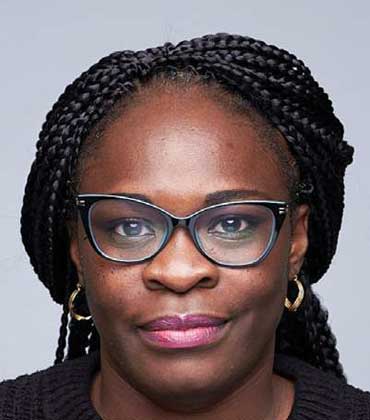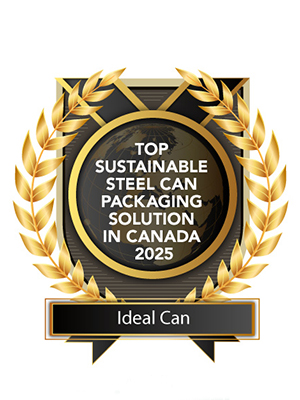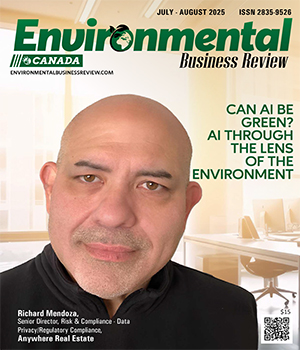Thank you for Subscribing to Environmental Business Review Weekly Brief
Environmental Business Review: Specials Magazine
Artificial Intelligence (AI) can significantly alter how we interact with IT systems and function in our daily lives. AI will impact the services we utilize today, but it also has a significant environmental impact, primarily due to the energy consumption and carbon emissions associated with training and supporting large AI models. We are hardwired to advance our position and move technology forward, but with that spirit of innovation comes a price. Here are some key points to consider when implementing an AI strategy: Energy Usage: Training a single AI model can consume thousands of megawatt-hours of electricity, comparable to the energy usage of entire nations. Carbon Emissions: The energy used in AI processes often comes from non-renewable sources, leading to substantial carbon emissions. Water Usage: AI data centers require significant water for cooling. For example, during the training of large foundational models, a data center can use 3-5 percent of a district’s water
Top Sustainable Steel Can Packaging Solution In Canada 2025
Ideal Can is a Quebec-based steel can manufacturer offering fully customizable, locally produced packaging solutions for the food, industrial and aerosol sectors. Powered by hydroelectric energy and committed to near-zero waste, the company delivers sustainable, reliable and just-in-time supply to clients across Canada, eliminating cross-border risks and reducing emissions..
Sustainable Packaging Solutions Provider in Canada
Bunzl Canada is leading the shift toward sustainable packaging solutions across the food, retail and industrial sectors, addressing the growing consumer demand for sustainability. According to NIQ’s 2023 Consumer Packaged Goods (CPG) Sustainability Report, 92 percent of consumers now view sustainability as a key factor in their purchasing decisions—proving that Bunzl’s efforts are more timely and essential than ever. At the core of this transformation is Blue Key, an in-house sustainability consultancy that empowers businesses to choose sustainable packaging solutions without sacrificing functionality or quality. A team of 20 global experts offers advice on eco-conscious strategies. Their expertise covers the latest sustainable practices, legislation and climate change considerations, ensuring clients remain at the forefront of environmental responsibility. “As a business enabler, we deliver essential sustainable packaging solutions that foodservice operators and retailers depend on daily, helping them reduce their product footprint while maintaining the integrity of their brand,” says Jennifer Mackey, senior director of sustainability. Bunzl’s sustainability strategy comes to life through its material footprint tool and the EcoSystems line, each playing a crucial, complementary role in reducing environmental impact while driving business success. The material footprint tool is a powerful data-driven resource that gathers insights from hundreds of packaging suppliers, detailing all aspects of packaging, including materials, compostability and their recyclable content verification. Decision-making is simplified with a detailed view of sustainable alternatives based on environmental impact, material composition and cost efficiency.
Environmental Solutions Specialist of the Year in Canada 2025
Tetra Tech [NASDAQ: TTEK] is a leading American consulting and engineering services firm. The company provides consulting, engineering, program management, and construction management services in water, environment, infrastructure, resource management, energy, and international development. Founded in 1966 in Pasadena, California, as the Water Management Group of Tetra Tech, the company began by designing waterway structures for harbors, ports, and marinas while supporting projects in water quality control and oil and gas exploration. These early endeavors laid the groundwork for Tetra Tech’s expertise in solving complex technical challenges. Building on this foundation, Tetra Tech partnered with the Department of Defense, where it honed its problem-solving capabilities in high-stakes environments. Over the following decades, the company strategically expanded its expertise into climate resilience, renewable energy, and sustainable urban development. This evolution has been driven by strategic acquisitions and an interdisciplinary approach, enabling Tetra Tech to grow into a global leader adept at addressing some of the world’s most pressing challenges. Today, Tetra Tech leverages its Leading with Science® methodology and the Tetra Tech Delta digital ecosystem—a suite of advanced, data-driven tools for managing complex systems—to deliver sustainable, measurable impacts. By combining cutting-edge technology with deep expertise, the firm provides innovative solutions that benefit clients, communities, and the planet, solidifying its reputation as a trusted partner for governments, private enterprises, and international organizations. The Leading with Science® Framework Central to Tetra Tech’s operations is its Leading with Science® methodology, a comprehensive framework that integrates technical expertise, practical application, and advanced technology. Rooted in evidence-based problem-solving and a steadfast commitment to innovation, this approach enables Tetra Tech to tackle some of the world’s most pressing challenges, from climate change and energy shortages to biodiversity loss. This adaptable framework empowers Tetra Tech to meet its clients' diverse needs. Whether managing water resources in drought-stricken regions, developing renewable energy infrastructure, or enhancing urban resilience in climate change, the Leading with Science® methodology focuses on identifying root causes and crafting targeted, data-driven strategies. Tetra Tech consistently achieves measurable and lasting results by employing rigorous scientific principles and ensuring real-world applicability.
CXO INSIGHTS

Mastering Sustainable Packaging
Barry Fraser, Culinary and Business Solutions Specialist, Gordon Food Service

Integrating Innovation and Practicality for Sustainable Packaging Solutions
Julia Lodi, Procurement Specialist - Packaging, Nature’s Path

Sustainable Packaging A Sustainable Business Approach
Titilope Omidiran (PhD), Global Environmental Social and Governance manager, Hunter Amenities International Ltd

Harnessing the Power for Analytics for Agriculture -Predictive Models
Caroline Morissette, VP McDonald’s Business Unit (MBU) and Commercial Data & Analytics, and Soma, Director Global Agriculture Data Analytics & AI, McCain Foods

Implementing Technological Advancements in Food Industry
Kitty Pat, Director of Quality Assurance, Bento Sushi
IN FOCUS
Sustainable Steel Can Packaging: Canadas Path to Eco-Innovation
Innovative steel can packaging offers sustainability through recyclability, reduced waste, and environmental benefits, while highlighting the importance of consumer education and engagement to optimize recycling efforts.
Towards a Greener Canada: The Role of Technology in Ecological Management
Canada takes up a green and informed path in ecological management by applying technology in ecosystem monitoring, the clean energy sector, and data acquisition for environmental planning.
EDITORIAL
Clean Tech, Circular Models, and Climate Action: Canada’s Business Momentum
A clear trend is the integration of clean technologies, including advanced carbon capture solutions, bioenergy systems, and AI-powered energy management, which reduce waste and operational costs. Canadian companies are embracing renewable energy microgrids and electrification initiatives to reduce emissions while improving energy resilience.
Another advancement is the emergence of the circular economy, where waste is transformed into a valuable resource. Leaders are investing in closed-loop supply chains, recycling innovations, and eco-design principles to reduce their environmental footprint while uncovering new revenue streams.
The regulatory landscape is also evolving rapidly. With Canada’s roadmap toward net-zero by 2050, businesses are aligning with stricter reporting standards, leveraging ESG data platforms, and adopting lifecycle analysis tools to quantify progress and meet investor expectations.
Financial innovation is also driving change, with green bonds, sustainability-linked loans, and carbon credit markets unlocking capital for projects that deliver both environmental and business value.
Across these shifts, digital transformation and sustainability are intersecting. Companies are using IoT sensors for real-time emissions monitoring, blockchain for supply chain transparency, and AI to optimize resource use, demonstrating how technology is accelerating Canada’s climate leadership.
In this edition, we are featuring the Top Sustainable Steel Can Packaging Solution in Canada 2025, Environmental Solutions Specialist of the Year in Canada 2025 and Sustainable Packaging Solutions Provider in Canada, that are turning sustainability into a competitive edge, demonstrating how clean technologies and responsible practices can drive growth in a changing world.
We hope these perspectives equip you with practical insights as you navigate your organization’s next steps toward a more resilient, future-ready business.








